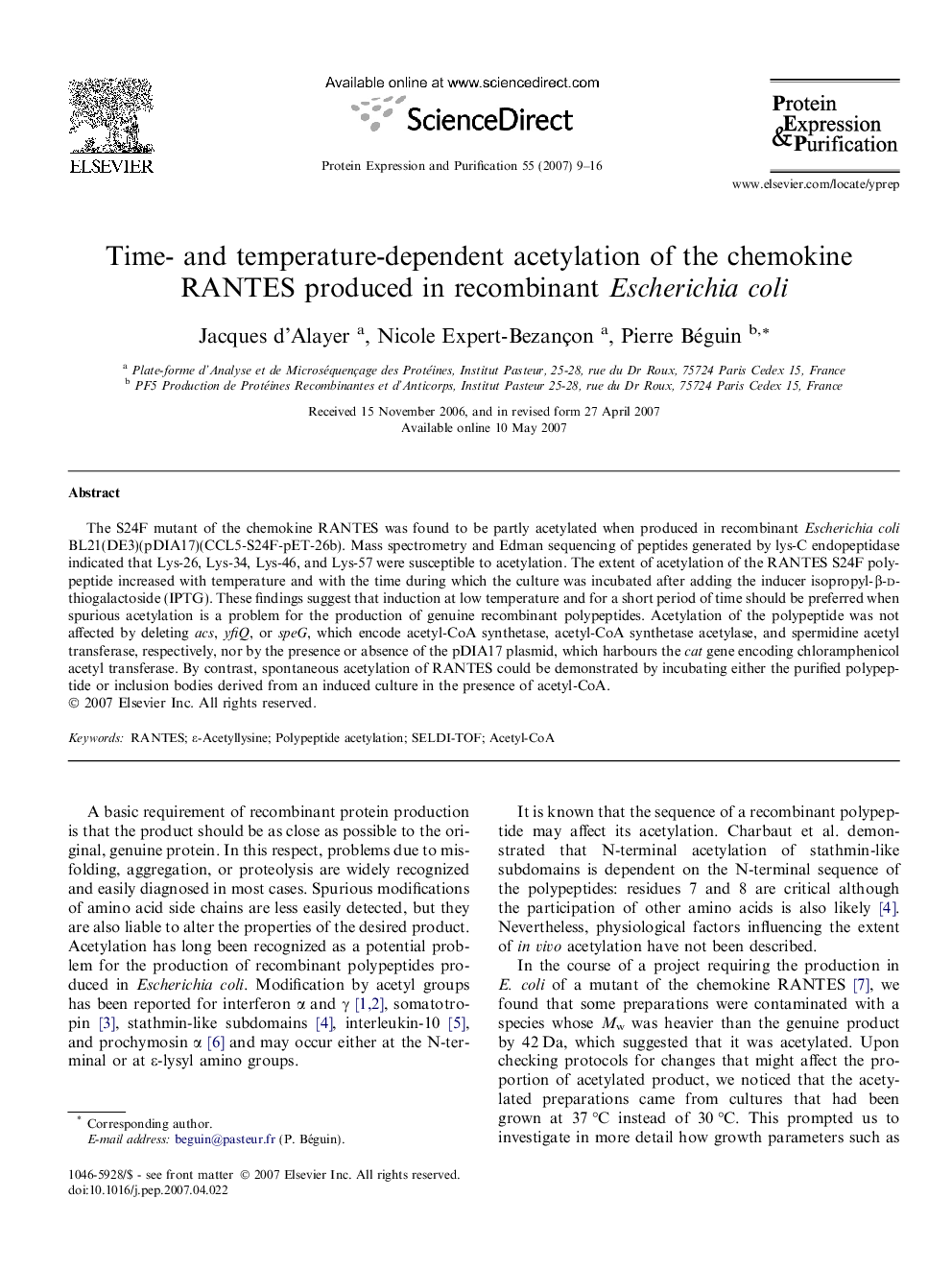| Article ID | Journal | Published Year | Pages | File Type |
|---|---|---|---|---|
| 2021865 | Protein Expression and Purification | 2007 | 8 Pages |
The S24F mutant of the chemokine RANTES was found to be partly acetylated when produced in recombinant Escherichia coli BL21(DE3)(pDIA17)(CCL5-S24F-pET-26b). Mass spectrometry and Edman sequencing of peptides generated by lys-C endopeptidase indicated that Lys-26, Lys-34, Lys-46, and Lys-57 were susceptible to acetylation. The extent of acetylation of the RANTES S24F polypeptide increased with temperature and with the time during which the culture was incubated after adding the inducer isopropyl-β-d-thiogalactoside (IPTG). These findings suggest that induction at low temperature and for a short period of time should be preferred when spurious acetylation is a problem for the production of genuine recombinant polypeptides. Acetylation of the polypeptide was not affected by deleting acs, yfiQ, or speG, which encode acetyl-CoA synthetase, acetyl-CoA synthetase acetylase, and spermidine acetyl transferase, respectively, nor by the presence or absence of the pDIA17 plasmid, which harbours the cat gene encoding chloramphenicol acetyl transferase. By contrast, spontaneous acetylation of RANTES could be demonstrated by incubating either the purified polypeptide or inclusion bodies derived from an induced culture in the presence of acetyl-CoA.
